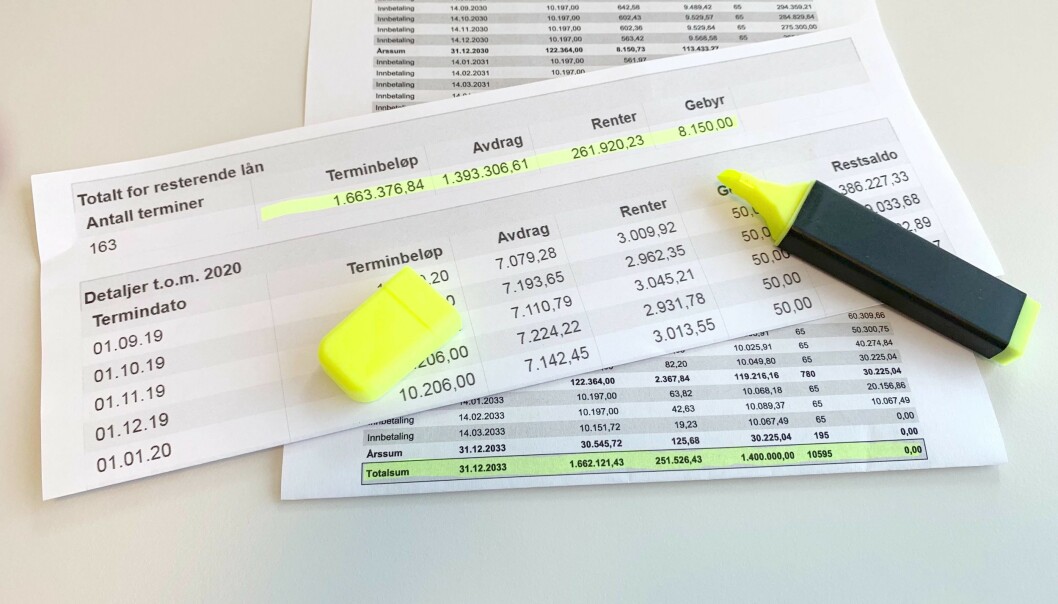On Monday morning, the Danish Financial Supervisory Authority announced that they had sent one proposal for new lending regulations to the Ministry of Finance.
This proposed regulation is intended to replace the mortgage and consumer loan regulations, and shall include all loans from financial institutions to private individuals – the changes are as follows:
- Maximum limit for the borrower’s total debt reduced from 5 to 4.5 times gross annual income when granting new loans.
- The flexibility ratio for mortgages is proposed to be reduced from ten per cent (eight per cent in Oslo) to five per cent. No flexibility quota is proposed for other loans. The banks are in fact allowed to grant loans to customers who do not meet all the requirements in the mortgage regulations – a so-called flexibility quota – where they can use discretion.
New fee with “loopholes”
Loses up to half a million of the mortgage
So, what does this mean for you?
Consumer economist Cecilie Tvetenstrand at Danske Bank sets up two examples:
- Are you single and earning 500,000 kroner With current rules, you can borrow up to NOK 2.5 million. With a purchase price of NOK 2,941,000, equity of NOK 441,000 is required in addition to the cost of the purchase (depending on whether it is a cooperative or freehold home that is to be purchased).
- With a new proposal, you have the opportunity to borrow NOK 2,250,000. The purchase price will then be NOK 2,647,000 and the requirement for equity NOK 397,000 + costs.
- You thus lose 250,000 kroner in loan, and 294,000 kroner of potential purchase price for the home.

Zero percent key interest rate yet – but for how long?
- If we are talking about a couple who earn one million kroner in total, with current rules, they can borrow up to five million kroner. Buy a home for NOK 5,882,000 with equity requirements of NOK 882,000 + costs.
- With a new proposal, the possibility of a loan is NOK 4.5 million. The purchase price will then be NOK 5,294,000 and the requirement for equity NOK 794,000 + costs.
- They thus lose NOK 500,000 of the possible loan amount, and NOK 588,000 of the possible purchase price if Finanstilsynet’s proposal becomes a reality.

 –
–


/data/photo/2019/07/22/5d353dfcaa282.jpg)
